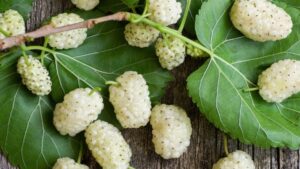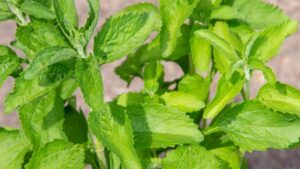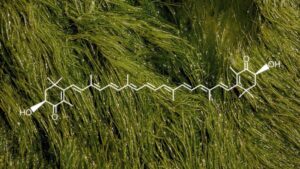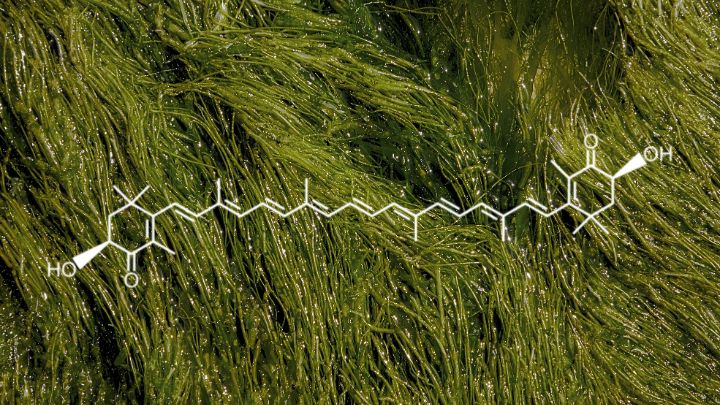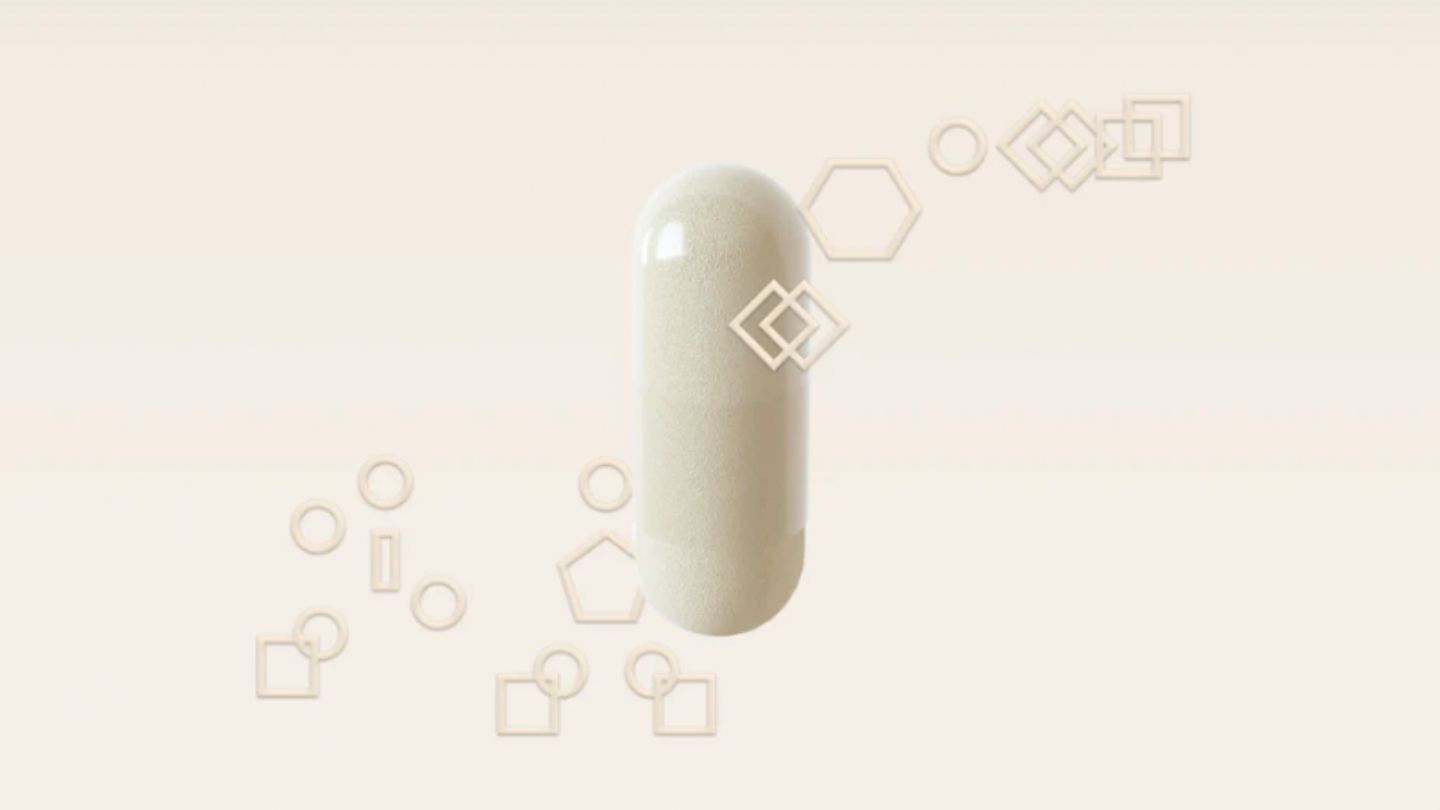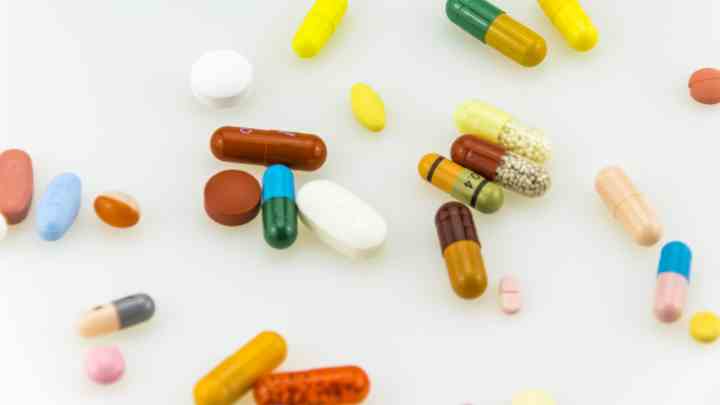As vital coenzymes present in every cell in every mammal on Earth, Nicotinamide Adenine Dinucleotide (NAD+) is crucial for cellular metabolism, energy production, and maintaining DNA integrity.
Unfortunately, NAD+ levels decline with age, correlating with increased susceptibility to age-related diseases and diminished cellular vitality.
This decline has driven interest in finding ways to boost NAD+ levels, with Nicotinamide Mononucleotide (NMN) and Nicotinamide Riboside (NR) emerging as promising supplements.
This article from Avea aims to delve deep into the functions and benefits of each, comparing their efficacy and potential to enhance longevity and counteract age-related decline.
We’ll sift through the science to determine which supplement might hold the edge and offer recommendations for those looking to reclaim their vigour and vitality as they age.
In this article
Free guide to reverse your biological age

- Master the science of rejuvenation.
- Apply proven tips to turn back the clock.
- Transform your health with top longevity specialists.
The critical role of NAD+
Nicotinamide adenine dinucleotide (NAD+) is fundamental to the complex process of converting nutrients into energy, a function at the heart of cellular operations.
Without NAD+, everyone will be dead within 30 seconds’’,
David Sinclair.
NAD+ also plays a pivotal role in the activation of proteins that maintain the integrity of our DNA, making it indispensable for healthy cellular function and longevity.
As we age, the levels of NAD+ in our body undergo a significant decline. This reduction is not merely a marker of ageing, but also a contributor to it. Discover the 12 hallmarks of ageing.
Reduced NAD+ levels impair the ability of cells to produce energy, leading to increased vulnerability to fatigue and disease, as the cellular mechanisms that repair DNA and respond to stress become less efficient.
The decline in NAD+ is also intrinsically linked to several ageing-related diseases, including neurodegenerative disorders like Alzheimer’s, cardiovascular diseases, and metabolic conditions such as diabetes.
NAD+ is critical in both the generation of energy and the regulation of key cellular processes, including the inflammatory response and how cells respond to stress, which are vital in managing and mitigating disease processes.
NAD+ also influences the activity of sirtuins, a group of proteins that are believed to contribute to longevity and vitality.
Sirtuins cannot function without NAD+. They use NAD+ to remove acetyl groups from proteins, a process needed for DNA repair and mitochondrial function.
Given its broad and critical role in maintaining cellular health, the decline in NAD+ is seen not only as a hallmark of ageing, but as a potential therapeutic target.
Replenishing NAD+ through precursors like NMN and NR presents a promising avenue for not only slowing the ageing process, but also reducing the risk and impact of various age-related diseases.
This foundation forms the basis of increasing interest in supplementing NAD+ levels as a means to restore cellular vitality and stave off the impacts of ageing.
So let’s understand why longevity scientists and health-enthusiasts are so excited about these molecules.
What is NMN?
Building on our understanding of the critical role of NAD+ in cellular health, Nicotinamide Mononucleotide (NMN) is emerging as a pivotal player in the science of longevity.
NMN is a direct precursor to NAD+, meaning it directly participates in the biosynthesis of this essential molecule.
It is structurally composed of a nicotinamide group, a ribose, and a phosphate group, which collectively facilitate its conversion to NAD+ once inside the cell.
Research into NMN as a supplement began gaining traction over the past decade, with studies intensifying as scientists observed its potential to mitigate ageing markers in animal models.
The seminal research on NMN started surfacing prominently in the early 2010s, with studies demonstrating its profound impact on ageing and metabolism in rodents [1], [2], [3].
These findings have since paved the way for clinical trials to explore the effects of NMN on human health and longevity.
The pathway from NMN to NAD+ is notably efficient.
Once ingested, NMN undergoes rapid absorption into the bloodstream and is transported into various cells across the body.
Inside these cells, NMN is converted into NAD+ through a sequence of enzymatic reactions catalysed by the enzyme NMNAT, which directly links it to the NAD+ synthesis pathway.
This streamlined pathway highlights NMN’s potential effectiveness in boosting NAD+ levels, providing the cellular energy and DNA repair mechanisms that are so vital for ageing cells.
Current research on NMN
As of now, numerous studies have demonstrated the potential of NMN [4], [5], [6], [7].
Research has escalated from early animal studies to human clinical trials that are currently underway, aiming to validate the safety and efficacy of NMN for increasing NAD+ levels in humans.
Preliminary results from these trials indicate that NMN is not only effective but also safe, with subjects tolerating high doses without significant side effects.
These studies further investigate the bioavailability of NMN, noting that it is rapidly absorbed and utilised by the body, making it an exceptionally promising supplement for anti-ageing therapies.
The safety profile of NMN is equally encouraging, with no significant adverse effects reported in the short-term studies conducted so far.
However, ongoing research continues to assess the long-term safety and potential therapeutic benefits of NMN, making it a critical focus in the field of molecular and clinical gerontology.
250 mg NMN Study
The effects of administering 250 mg of Nicotinamide Mononucleotide (NMN) daily to older adults, were studied, recently.
In a placebo-controlled, randomised, double-blind trial, healthy aged men received 250 mg of NMN daily for periods of either 6 or 12 weeks.
The study aimed to determine whether chronic oral supplementation of NMN could effectively elevate blood NAD+ levels and improve various physiological functions associated with ageing.
Key findings of the study
- Safety and tolerance: The supplementation was well-tolerated by participants, with no significant adverse effects reported, reaffirming the safety of NMN for long-term use.
- Increase in NAD+ levels: Metabolomic analysis of whole blood samples indicated a significant increase in NAD+ and related metabolites, demonstrating that oral NMN is an efficient method to enhance NAD+ bioavailability in the human body.
- Functional improvements: There were notable improvements in physical capabilities, including gait speed and left-hand grip strength. These changes suggest potential benefits of NMN in preserving muscle function and physical performance in older adults, although further studies with larger sample sizes are needed to validate these findings.
- Impact on body composition: The study observed no significant effects of NMN supplementation on body composition, indicating that its benefits might be specific to biochemical and muscular improvements rather than weight or fat mass changes.
Avea’s solution
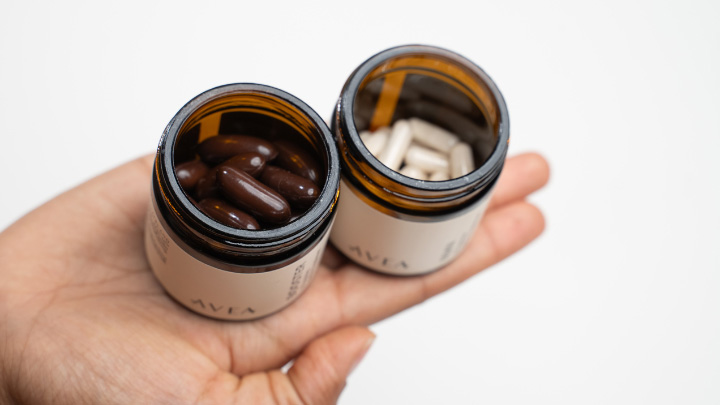
- Recover youthful energy, mental focus and physical performances with our science-backed synergistic duo
- Based on 500+ studies and formulated by longevity experts to target the signs of ageing at the core
- Proven to increase NAD+ levels, supporting hundreds of cellular mechanisms
- 90 days money-back guarantee
What is NR?
Nicotinamide Riboside (NR), also known as a form of vitamin B3, is another precursor to Nicotinamide Adenine Dinucleotide (NAD+).
Similar to Nicotinamide Mononucleotide (NMN), NR facilitates the production of NAD+, the vital molecule that supports numerous cellular functions including energy metabolism, DNA repair, and regulation of cell ageing.
Upon ingestion, NR undergoes a unique conversion process before it contributes to NAD+ levels.
The enzyme nicotinamide riboside kinase (NRK) first converts NR into Nicotinamide Mononucleotide (NMN).
This step is crucial as it differentiates NR from NMN, which is already one step closer to NAD+. Once converted to NMN, it follows the same pathway to become NAD+.
Clinical evidence supporting NR’s efficacy and safety
Clinical trials have shown that NR effectively increases NAD+ levels in humans, offering benefits such as enhanced mitochondrial function and improved energy metabolism [8], [9], [10].
Studies have noted improvements in markers of metabolic health, better management of blood glucose levels, and potential neuroprotective effects.
On the safety side, NR has been well-tolerated in clinical settings, with studies typically reporting no significant adverse effects.
Whilst both NR and NMN are effective at boosting NAD+ levels, the initial conversion of NR to NMN suggests a slight delay before it contributes to NAD+.
However, this does not necessarily diminish its effectiveness as a supplement, as NR can be particularly useful in tissues where NRK is abundant.
NMN v.s. NR, which one works best?
So now, let’s now compare NR with NMN. Which one is better?
Both are crucial for boosting NAD+ levels but differ significantly in their molecular structure, bioavailability, and how effectively they increase NAD+.
Molecular structure differences
NR and NMN both serve as precursors to NAD+, but their structures impact how they are processed within the body:
- NR is a smaller molecule compared to NMN because it lacks a phosphate group. This difference means NR needs to be converted into NMN by the enzyme nicotinamide riboside kinase (NRK) before it can be used in the NAD+ synthesis pathway.
- NMN, already containing the phosphate group, skips this conversion step, potentially streamlining its pathway to NAD+ synthesis directly.
Bioavailability and efficacy
The bioavailability of NMN and NR—which refers to how much of each compound can be used by the body—varies based on their absorption and conversion processes:
- NMN might be expected to have higher bioavailability as it is closer in the NAD+ biosynthesis pathway and does not require conversion by NRK. However, the presence of the phosphate group can complicate its passage through cellular membranes.
- NR has to be converted into NMN, yet this might not be a disadvantage. The widespread presence of NRK in different tissues can facilitate the local synthesis of NAD+ directly where it is most needed, enhancing NR’s overall efficacy in boosting NAD+ levels.
Tissue-specific preferences
Different tissues may prefer one precursor over the other due to their specific enzyme expressions and transport mechanisms:
- NMN may be more readily utilised in tissues where direct NMN transport mechanisms are prevalent, allowing for rapid absorption and conversion to NAD+.
- NR could be more effective in tissues with high NRK activity, where it can be locally converted to NMN and then NAD+, supporting energy metabolism and cellular repair efficiently.
Understanding these differences helps clarify why one precursor might be more suitable than another in specific contexts or health conditions.
The choice between NMN and NR should consider individual metabolic needs, the targeted tissues or systems, and the specific health outcomes desired.
Yet, based on the latest evidence, we have a favourite at Avea.
Avea’s favourite
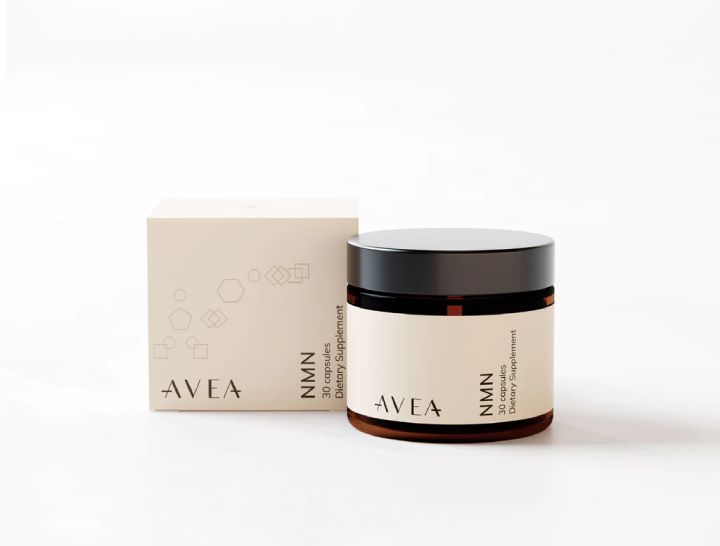
NMN and NR are both celebrated for their longevity benefits, but recent research suggests that NMN may be the superior choice for enhancing NAD+ levels.
Here’s why we prefer NMN over NR:
NMN is closer to NAD+: As a direct precursor, NMN is already closer to converting into NAD+, giving it a head start.

Stability: NMN boasts greater stability compared to NR.
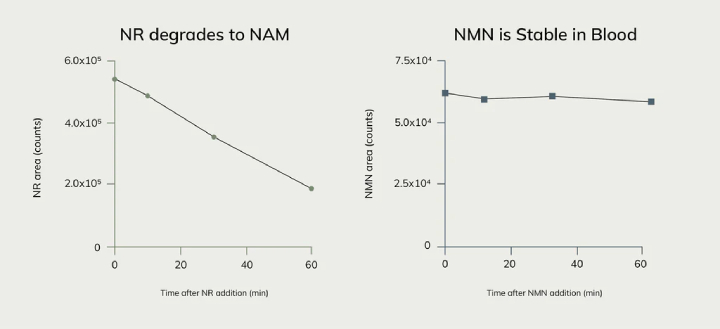
Broader benefits: Studies reveal that NMN offers a wider range of positive effects beyond those of NR.
Expert Approval: Notable experts, including Dr. Sinclair, incorporate NMN supplements into their daily regimen. Explore Dr. David Sinclair and his anti-ageing supplements.
NASA’s Interest: Even NASA is beginning to explore the benefits of NMN.
Dr. Shin-ichiro Imai, a pioneer in the field of ageing and longevity, has significantly advanced our understanding of NAD+ and its critical roles in metabolism.
Currently a professor at Washington University School of Medicine, he envisions a future where we can age productively with interventions that promote healthy ageing.
At Avea, we share this vision. We’re confident that boosting NAD+ with NMN can help you lead a longer, healthier, and more vibrant life.
Practical implications for longevity and health
Given our exploration into the unique properties and effects of Nicotinamide Mononucleotide (NMN) and Nicotinamide Riboside (NR), it’s essential to understand how to strategically incorporate these supplements into a regimen aimed at enhancing longevity and improving overall health.
Choosing between NMN and NR
Selecting the right NAD+ precursor involves considering several factors:
- Personal health goals: If your aim is to enhance your metabolic health or boost your cognitive function, NMN might be more suitable, as it is readily converted to NAD+ and supports energy-dependent processes efficiently. If you’re focused on cellular repair and skin health, NR’s ability to be converted into NMN in various tissues might offer targeted benefits, as indicated by its use in improving skin health and reducing puffiness in clinical settings. Though, NMN has also been shown to improve skin health.
- Latest research: Keep abreast of recent studies, such as those indicating NR’s potential in neuroprotection or NMN’s benefits in cardiovascular health. Research from clinical trials provide valuable insights into dosing and efficacy, guiding more informed choices based on scientific evidence.
Potential dosing strategies
Effective dosages can vary based on individual factors such as age, metabolic health, and the presence of any chronic conditions.
Start with lower doses and monitor the effects. Gradually adjust based on personal tolerance and the observed benefits.
This adaptable approach can help determine the most effective dose for your specific needs.
Regular check-ups can help monitor the effects of NMN or NR on your body, adjusting dosages as necessary to optimise health outcomes.
Healthcare providers can also help interpret any changes in health markers influenced by NMN or NR supplementation.
References
